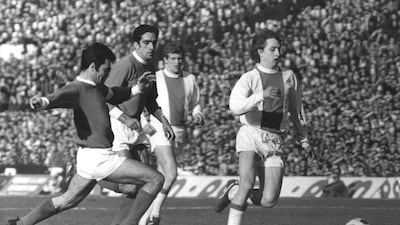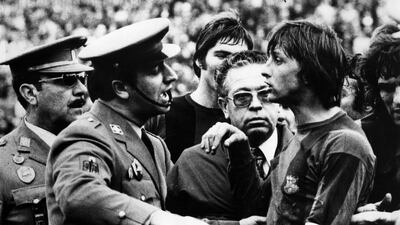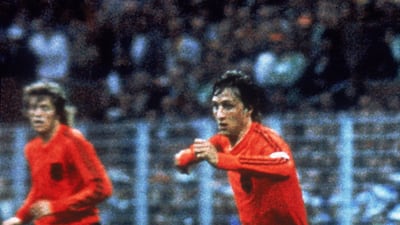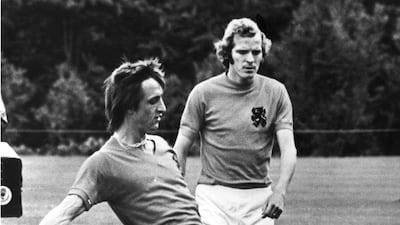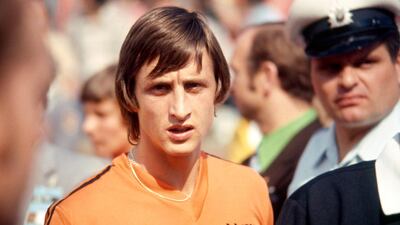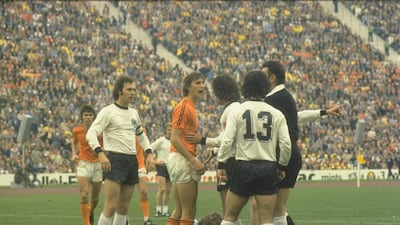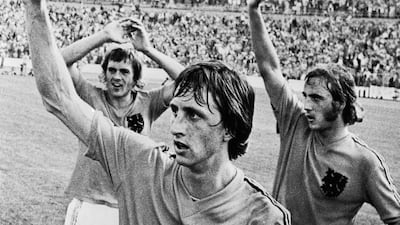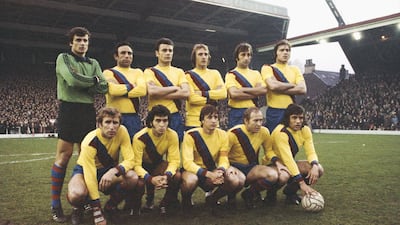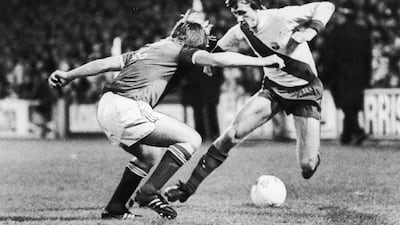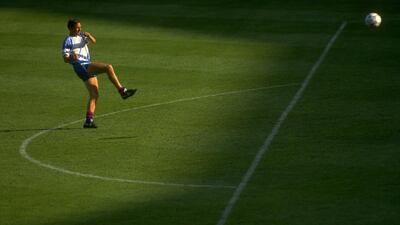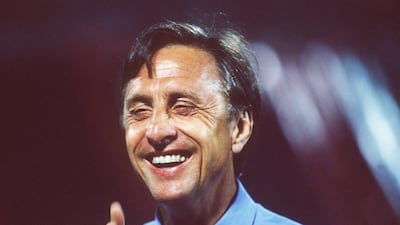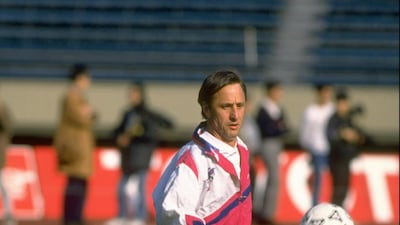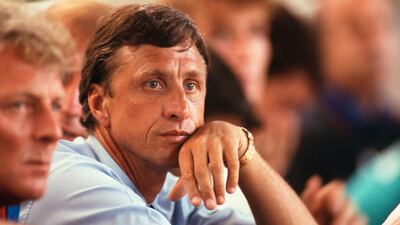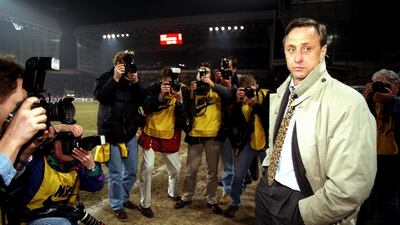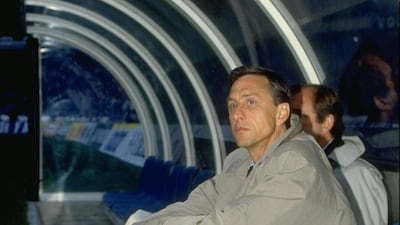The football world lost one of its most pioneering figures on this day in 2016 when the great Johan Cruyff died of cancer aged 68.
Born in Amsterdam in 1947, just a short jog away from Ajax's stadium, Cruyff became part of the Dutch club's youth system at the age of 10.
When Rinus Michels took over as manager in 1965, the era of Total Football – a fluid system in which no player occupies any fixed outfield role – had begun and Cruyff became his trusted lieutenant. He would also became one of the greatest players in football history.
“Without Cruyff,” said Michels, his mentor and manager at Ajax, Barcelona and with the Dutch national team, “I have no team.”
In two spells at Ajax, he clinched the Eredivisie eight times – including six titles between 1965 and 1973 – and won the European Cup three years in a row from 1971.
Former Manchester United and France attacker Eric Cantona said: "He was at the heart of a revolution with his football. Ajax changed football and he was the leader of it all."
For the Netherlands, he would play 48 times, scoring 33 goals, guiding the team to runners-up at the 1974 World Cup in what was one of the greatest teams never to lift the trophy, when they lost to West Germany in the final.
"We lost one of the most important games of our lives, but I think that brought us more fame than we could ever have had by winning," Cruyff later said. "Because everybody wanted us to win, that brought even more attention, sympathy and affection.
"For four weeks in that tournament no one was talking about winning or losing – the world audience just wanted to see the nice football we played. So, it is not an excuse, it is true – the result of the final doesn't even bother me."
That tournament would also see Cruyff produce one of the most famous pieces of skill of all-time when he produced a feint, dropped shoulder and 180-degree pivot that would leave Swedish defender Jon Olsson for dead. It become a trademark move that is still taught to aspiring young players to this day.
“The proudest moment of my career," said Olsson. "I thought I’d win the ball for sure, but he tricked me. I was not humiliated. I had no chance. Cruyff was a genius.”
In 1973, he moved to Barcelona for a world-record fee of £920,000 (Dh3.9m) and so began a long and sometimes stormy love affair that would dominate the rest of his football career.
Teaming up with Michels again, the duo would help drag the Catalan side to their first La Liga title in 13 years in a season that would include a 5-0 win at fierce rivals Real Madrid and a 27-match unbeaten run.
His managerial route would follow a familiar path. Success at Ajax – winning the Dutch cup twice and the European Cup Winners’ Cup – came before heading to Spain to revolutionise Barca.
The style of play Cruyff would instil into the club, maintaining possession with short passes and quick movement, would influence teams and managers for years to come.
As manager at Camp Nou, Barca would win four La Liga titles, a European Cup Winners' Cup and a European Cup with a team containing the likes of Hristo Stoichkov, Michael Laudrup, Ronald Koeman, Romario and Pep Guardiola.
Guardiola, who would manage the club during his own remarkable era of success from 2008-12, said: “Johan Cruyff painted the chapel, and Barcelona coaches since merely restore or improve it.”
Former club president Joan Laporta has also made clear just how influential Cruyff was. “As a player he turned football into an art form. Johan came along and revolutionised everything," Laporta said. "The modern-day Barca started with him, he is the expression of our identity, he brought us a style of football we love.”
A heavy smoker until heart surgery in 1991, Cruyff was diagnosed with lung cancer in 2015 and died of the disease aged 68. “He has had the biggest influence on football out of anyone in the world, first as a player and then as a coach," said Guardiola. And few would argue.
